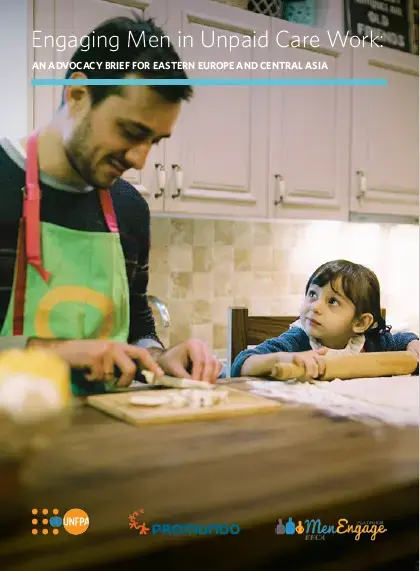Unpaid care work is often considered a secondary issue, but it’s one of the key drivers of women’s inequality. In Eastern Europe it is also an element in continuing low fertility as the prospect of having to shoulder most of the unpaid care forces women to choose between having children and having a career.
Over the past 10 years, new data on men and gender relations has emerged from the region. Such data provides evidence on ways in which equality in caregiving is good not only for women’s empowerment and children’s well-being, but how men’s caregiving is also good for men themselves. Research shows that involved fathers feel more emotionally connected to their partners and to their children, and that they live happier, longer lives. This advocacy brief explores how men’s (and women’s) beliefs, attitudes and practices, as well as weak societal support for shared caregiving, impact gender equalityat the household level. This advocacy brief highlights the need to transform men’s gender-inequitable practices in relation to family life – and dismantle the underlying factors that perpetuate inequality.




